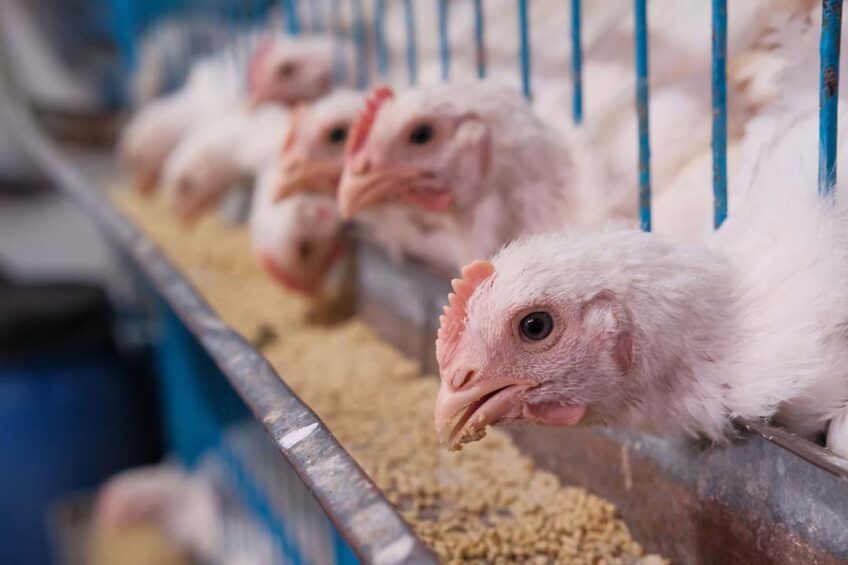Calls for EU legislators to ban cages for layers

Calls for the European Union to deliver on its promised ban on the use of cages for farmed animals have been made by animal welfare charity Compassion in World Farming in its latest EggTrack 2023 report.
The report shows that food companies are focused on providing a cage-free life for egg-laying hens, despite the ongoing challenges posed by avian influenza, inflation and the war in Ukraine. But it says that without their actions being reinforced by legislators, there will not be a final eradication of cages.
Such legislation, it argues, would broadly reflect consumer attitudes, pointing to the 1.4 million EU citizens that signed the ‘End the Cage Age’ initiative in 2020 and the 2023 Eurobarometer report which found that 91% of European believe that protecting the welfare of farmed animals is important and 84% saying animals should be better protected than they are currently.
Egg Track commitments
During the year, 444 companies were monitored by Egg Track. Between them they have made 715 cage-free commitments of which 511 (71%) are reporting progress, with an average of 75% transition to cage-free eggs. They straddle all sectors with 51 manufacturers, 195 retailers and meal kit providers, 111 restaurants, 13 producers and 74 food service and hospitality companies represented.
Figures differ across the globe. The highest average transition to cage-free eggs in Europe was 80%, while in the US it was 73% and in the Asia-Pacific (APAC) region the figure was 57%. A total of 9 companies made new global cage-free commitments, and are Associated British Foods PLC, Bakkavor Group PLC, Brinker International Inc, CKE Restaurants Holdings Inc, Dairy Queen, Delaware North, McCormick and Company, Norwegian Cruise Line and the JM Smucker Company.
Debbie Friedel, director of sustainability at Delaware North, said the company had been working with Compassion in World Farming for the past couple of years as it had recognised there was more it could do to progress its cage-free commitment: “Product availability and supply chain disruptions can present a real challenge to meeting our animal welfare commitments. Through consistent communication and feedback, we have benefitted greatly from CIWF’s knowledge and expertise as we transition to 100% cage-free eggs by 2025.”
Reaching cage-free goal
This year, 8 companies reached their goal of being cage-free at either global, regional or national level. These companies are The Hershey Company (who achieved global cage-free status), LJ Fairburn and Son Ltd (UK), Gruppo Eurovo (Italy), KFC (Europe), Kraft Heinz Company, CVS, Walgreens (US) and Burger King (Australia and New Zealand).
In the past there has been criticism that companies have been incorrectly calling themselves cage-free throughout their global supply chain. Compassion is urging companies to be 100% cage-free throughout their global supply, covering all regions and including all egg categories, such as shell eggs, egg products and egg ingredients.
A cage-free future for egg-laying birds?
Dr Tracey Jones, global director of food business, Compassion in World Farming, said the voluntary commitments and continued progress highlighted in the report demonstrates that food companies are focused on providing a cage-free future for egg-laying birds: “Europe holds a unique opportunity to lead the way on animal welfare. By responding to its citizens with a ban on cages and supporting businesses in their transition, the European Commission has a momentous opportunity to create a level playing field across industry and sends a strong message to the rest of the world that cages should be consigned to the history books for good.”
UK: 23% of hens in cages
Meanwhile, in the UK, the percentage of hens in cages has dropped below a quarter for the first time to just 23% in 2023 – a fall from 51% just a decade ago. But The Humane League says the government must now ban cages outright.
Mia Fernyhough, global animal welfare manager at The Humane League: “The number of hens in cages is continuing to decline and is proof that the UK pubic loathes these cruel systems of confinement and desire better for animals. However, without a ban this steady decline could peter out, leaving millions of hens trapped in cages… The government must show leadership and compassion by stamping out cruel cages with an outright ban.”
Cage bans
France has banned the installation of new cages and all cage systems for hens are already banned in Austria, Luxembourg and Switzerland. Germany, the Czech Republic and Slovakia have enacted bans that will come into force in the coming years. The US is also making strides with bans on battery cages across 11 different states.
The full EggTrack 2023 report can be found at www.eggtrack.com.
Join 31,000+ subscribers
Subscribe to our newsletter to stay updated about all the need-to-know content in the poultry sector, three times a week. Beheer
Beheer











 WP Admin
WP Admin  Bewerk bericht
Bewerk bericht